


What we do
Empowered leaders
Empower change

“I develop a culture of understanding that everyone matters and that by conquering fear, we can create a trusting and safe environment where people and businesses can thrive.”

Honed by years of extensive experience and research, Anderson Leadership Consultings’ systematic methodology empowers corporate leaders to empower organisations and drive lasting and effective cultural change
Change Expert
Leading organisations through the behavioural change required to achieve a culture of success
Leadership Coach
Guiding leaders in their journey to becoming the best version of themselves. Our process identifies obstacles to success, defines the approach to overcome them, and creates a path towards greater effectiveness
Team Coach
Coaching teams toward cohesiveness. We build comfort in the art of difficult conversations and engineer an environment of trust and accountability
Keen to work together?
How we do it
Structured methodology
“Isaac Newton defined the law that energy cannot be created or destroyed; it can only be transferred. We formulated the ‘law of empowerment’, which states that ‘power cannot be created, it can only be transferred.”

Anderson Leadership Consulting’s systematic approach has been refined and tested over many years to achieve effective cultural change in organisations

We begin with the leadership

We set milestones

We work to identify the behaviours that need changing

We facilitate the practising of required behaviours

We resolve blockages by creating the ability to have difficult conversations

We practise building trust by creating a platform for honest participation in problem-solving sessions

We implement an environment for genuine empowerment and build stronger teams
Why we do it
Helping people conquer fear and thrive

“I teach the art of running meetings and problem solving, not the stuff you can Google, the invisible stuff, the stuff that people do without thinking of the impact it has on others.”

We all want to know that we matter and to feel that we are capable of being successful
Unfortunately, many of us believe that we lack the competence, skill or experience to succeed; we’re scared of not being good enough
These feelings are founded in fear, which stimulates unwanted behaviours, most of which we’re unaware of, and to be successful in the journey of empowerment, we have to release that fear
When we realise that we are good enough; that we are skilled, competent and complete, just as we are. Then we release the destructive behaviours that disempower ourselves and those around us
When we let go of fear, we create safety, and where there is safety, people thrive
Programmes & Courses

“Conscious leadership change leads to mindful change leadership”
Leadership Coaching
Advanced
Presentation Skills
For Executive Presence

Learn advanced practices to communicate and establish your presence. We draw on neuroscience to improve how you present yourself, lead your team and interact with your customers.
We offer a stand-alone 3-day course or a longer-term culture intervention that enables managers to conduct short training interventions that will allow them to build a culture of continuous improvement.
Executive
Leadership Coaching
Programme

We use ‘Brain-Based Coaching’ to take you on a journey to understand yourself better, expand your inner capabilities and overcome the unconscious patterns that are holding you back.
Unlock your potential with a holistic program that explores the deep factors which affect your personal and professional performance.
Shine a light on your blind spots and gain new strategies to level up. A 12-week game-changer programme.
Team
Coaching
Programme

Teamwork takes work! Lack of trust and an inability to hold each other accountable in teams are among the biggest stumbling blocks in organisations.
The inability to fulfil tasks on time, decision-making taking too long, finger-pointing, blaming and copying ‘all concerned’ in emails indicate a problem with trust, which usually goes hand-in-hand with the fear of conflict.
Utilising Brain-Based Team Coaching, we will work with your team to understand how the brain drives their and others behaviours; we use this knowledge to agree on the way forward.
This programme intends to build a strong leadership team that can drive the strategy, inspire the values in the organisation, and build strong teams below them. Team coaching sessions are done in conjunction with 1:1 sessions to allow each individual to unpack their role in the team.
Change Management
Conscious
Change Leadership
Programme

Conscious change leadership is the new change management methodology, equipping your team to manage change daily.
This journey is tailored for all leaders in the organisation.
Culture
Change
Interventions

Let us guide you through your culture change journey, help you develop the plan and guide you along the way.
Along this journey, your leadership team will be equipped with conscious change leadership skills to ensure that this change is successful & lasting.
Virtual Reality Workshops
Learning 4.0
We develop Virtual Reality (VR) training workshops

We capture the work environment using a 360°/VR camera setup and customise workshops and training sessions. These are uploaded to a cloud-based learning platform accessible globally via VR headsets or via the HazID app on android mobile devices.
VR training benefits
- Fully immersive training (no distractions)
- 4X better information retention
- Safely practice in a simulated work environment
- An immersive VR setting allows delegates to experience natural emotional triggers in a workplace environment which increases participant engagement & information retention
- Training departments can view the progress of each delegate, their scores, how many attempts are needed to complete tasks, as well as identify common mistakes amongst the delegates
We currently offer VR workshops for the following applications:
- Induction to site
- Hazard identification
- Training various Standard Operating Procedures
Ready to affect change?
Erica’s story

Intention
Behaviour
Impact
For 15 years, Erica worked as an ‘operations consultant’, implementing operational excellence in the workplace. As she describes it, ‘… a fancy term for putting the basics in place.’
Implementing the basics in any organisation allows each team to focus on key performance indicators (KPI’s) within their control and to address the problems that affect these KPI’s. A successful result is an empowered workforce, where the front-line workers resolve situational problems and managers can focus on systemic or strategic issues.
Despite rigorous planning, successful implementation of ‘the basics’ can be a painful process, and most companies give up along the way. After failing, many attempt the same journey with different consultants, new graphs, and new problem-solving methodology, yet somehow end up in the same place.
Erica couldn’t understand how something so simple can take so long, be so difficult, and often unsuccessful. Frustrated with the arduousness of something that, on paper, should be straightforward, Erica set out to read every change management book she could get her hands on. She reviewed current methodologies, schools of thought regarding change management, looked for missing links and started experimenting.
In her research, one principle stood out. To be successful, the leadership team must be fully committed to the process, a principle that is taught in all change methodologies, but there was more to it than meets the eye.
John Kotter asserts that organisations need ‘… a strong guiding coalition…’ and while most people assume that leadership teams work as guiding coalitions, this is often not the case. Most often, one needs to start by building a leadership team that believes in change and is equipped to drive it. We know that leadership must ‘walk the talk’, but what does this mean, and how do we equip leadership teams to put words and actions into practise successfully?
Erica continued to test different methodologies but encountered continuing setbacks and realised that something else was missing to create effective change management. She kept studying, taking herself to MIT and Michigan State University to study Change Management. Here, she was introduced to Behavioural Studies and Neuroscience, two disciplines that helped her understand why people behave the way they do and how the brain works within these behaviour patterns.
She learned that there is more to trust and empowerment than we think, that trust is easily broken, and that broken trust is challenging to detect. The only things visible are the symptoms such as finger-pointing & blaming with no one prepared to raise the real issues aloud.
She learned that to empower an individual or team, that someone else needs to release power. This ‘power’ is often internal and makes us feel like we matter, and it makes us feel worthy and ‘fuels’ us every day. To truly empower others, the leadership must be a united team with a high level of emotional intelligence and mutual trust and willingness to let go of their own power.
The assumption is that mutual trust and emotional intelligence is in place within leadership teams; the reality is that the leadership team is where the ‘work’ needs to start.
These learnings form the foundation for the consulting methodology she employs at Anderson Leadership Consulting.
A firm understanding that everyone matters and that by conquering fear and creating a trusting and safe environment, people and businesses can thrive.
Erica’s top 10 books on cultural transformation

“I have read extensively on Change Management and have a variety of books that have influenced my thinking. They are not all “change” related, however; they are all “behaviour” related and have helped me understand human behaviour and the dynamics that exist between us.”

Beyond change management
This book is my favourite of all time, and although we share the same name, we’re are not related.
All change management schools of thought talk about analysing stakeholders, but they only focus on the external change people need to go through: what do they gain or lose; what do they need to start or stop doing?
The authors introduced me to how the impact of change can trigger emotions in people. These emotions will surface as resistance, but it is often just a fear of failure.
They guide us in having conversations that can help people release these emotions, which sounds easy on paper, but staying grounded when being flooded with another’s emotions; takes a whole other level of self-awareness.
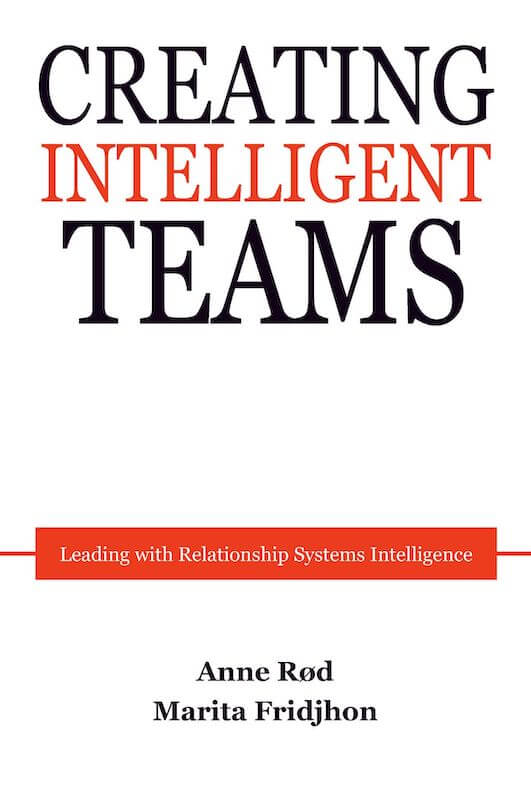
Creating intelligent teams
One of the most challenging books I have ever read, right up there with James Joyce’s Ulysses, but by the third time I read it, everything fell into place, and I understood the irrational things that can pull team dynamics entirely out of sync.
They offer many tools to help teams reveal the issues that hold them back and repair team relationships. This book is also where I discovered the concept of ‘Intention — Behaviour — Impact.’
Classical change management focuses on intention leading to impact, but if your intention doesn’t align with your behaviour, you find yourself having an adverse impact.
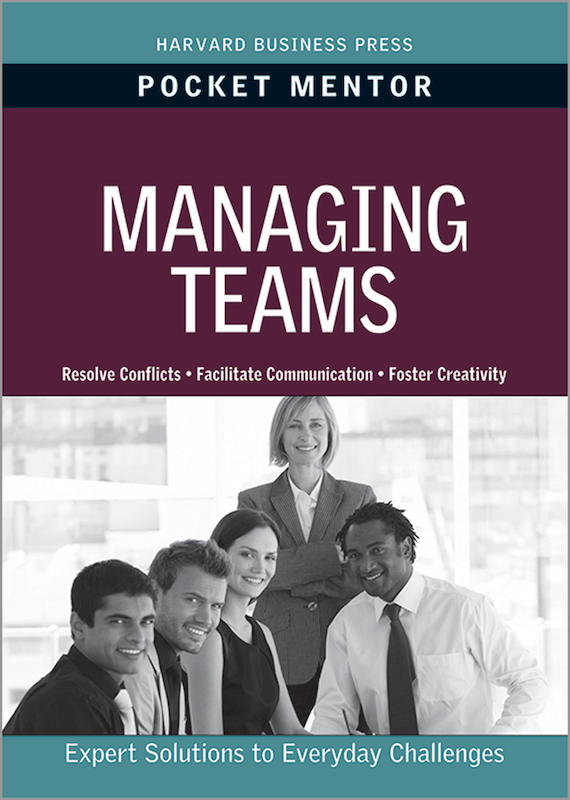
Managing teams
This book is a quick read and shares valuable tips on the importance of clear roles and responsibilities for every team member.
It also stresses the need to discuss our mutual expectations, which can clear up many misunderstandings with a team. These misunderstandings are like rats gnawing at the fabric that holds a team together.

Understanding your child’s subconscious
This might sound like an extraordinary book to have in a Change Management reading list, but the author helps us understand how behaviour is shaped from a young age and how our upbringing shapes our thought patterns and triggers.

HBR’s 10 ‘must reads’ on change management
I enjoy the HBR (Harvard Business Review) series. In change management, focusing solely on one disciple or another, too much on Kotter, or too much Prosci, there are elements in your learning that are easily missed. This publication gives you a valuable general overview from several perspectives.
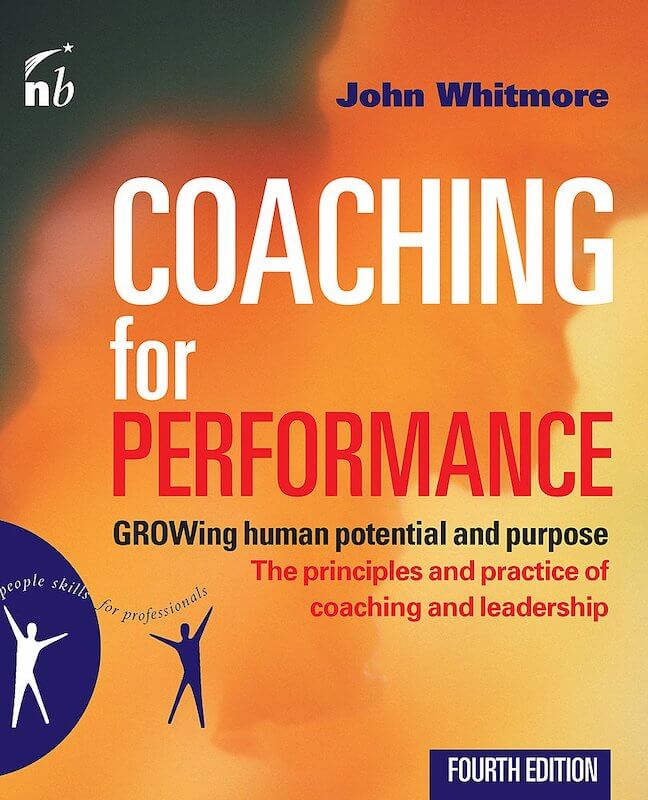
Coaching for performance — GROWing human potential and purpose
The word ‘coaching’ is often used; incorrectly. Right now, it’s a prevailing buzzword for a good reason, but we should be talking about teaching, mentoring, or instructing – depending on what is required. The author provides excellent insight on the correct approach and offers some great practical examples.
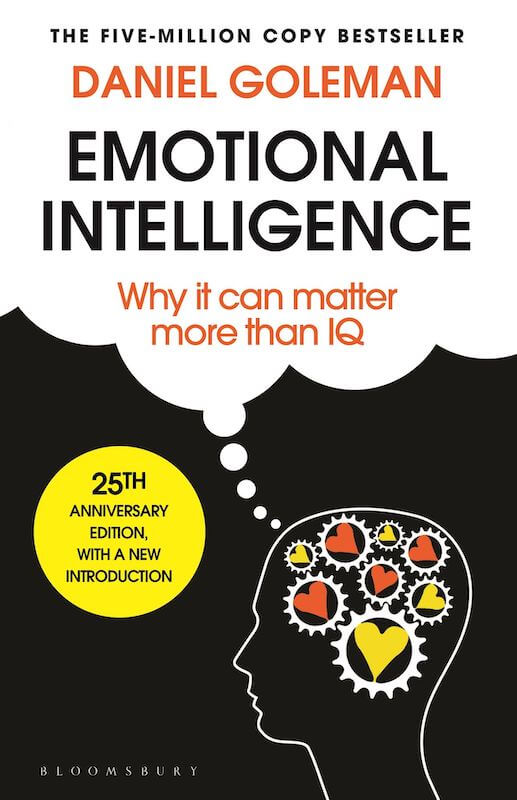
Emotional Intelligence
I read this book very early in my career, just after I completed my EQ certification. If you are planning a cultural transformation, you have to ensure that your Guiding Coalition (Kotter) has a high level of EQ, and if they don’t, creating it needs to be part of the first phase of your change plan.
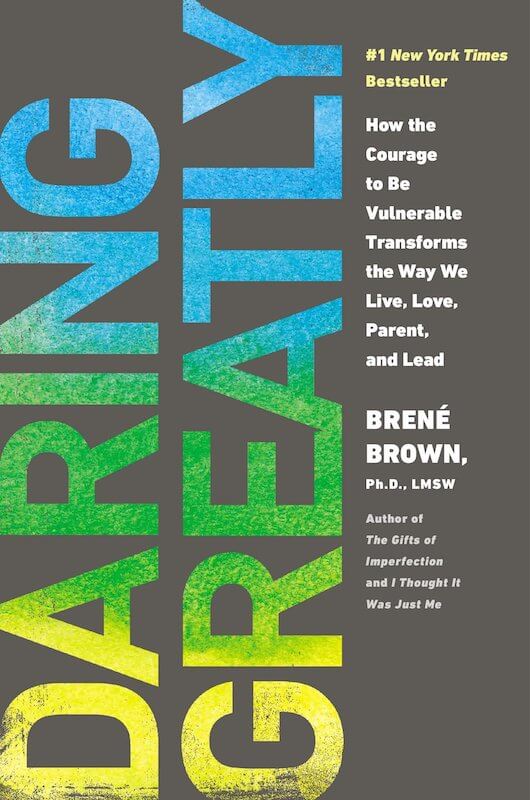
Daring Greatly: How the Courage to Be Vulnerable Transforms the Way We Live, Love, Parent, and Lead
Lack of trust is a big problem in most organisations. This book helped me understand what it means to trust each other: what it really takes to be vulnerable. So many see it as a weakness, but few people understand how much strength it takes to be vulnerable.
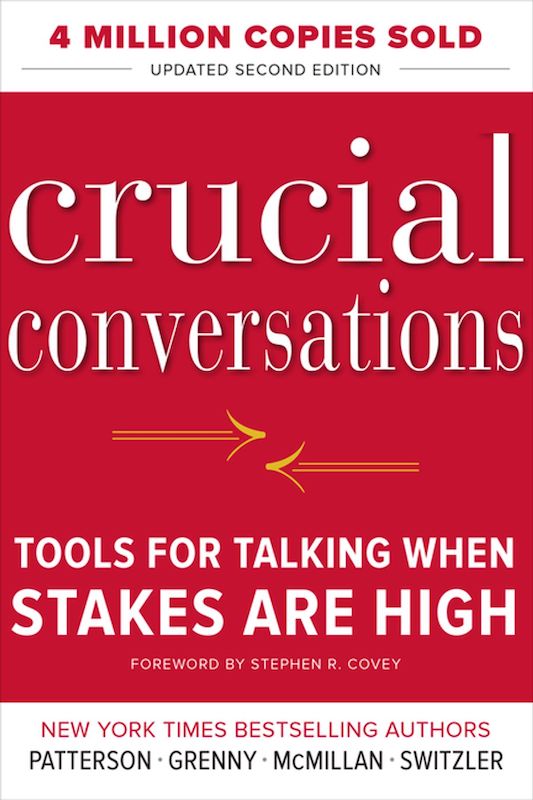
Crucial Conversations — Tools for talking when stakes are high
The skill to have difficult conversations and hold people accountable is rare and yet something everyone should master.
The author gives step by step instructions to guide you through the process. It will’ bite’ you badly if you are planning a cultural transformation and don’t have this on your plan.

Big Magic — Creative living beyond fear
I have read all of Gilbert’s books, and I love them all.
One of my many sayings is that ‘Empowerment has a kryptonite, its name is fear’. This saying helps us understand how fear holds people back and that we must overcome fear to reach our potential.
If you want to create empowered teams, you need to unpack what creates fear in the workplace and actively work to eradicate it.
What we do
How we do it
Why we do it
Courses & Programmes
Erica Anderson
What to read

